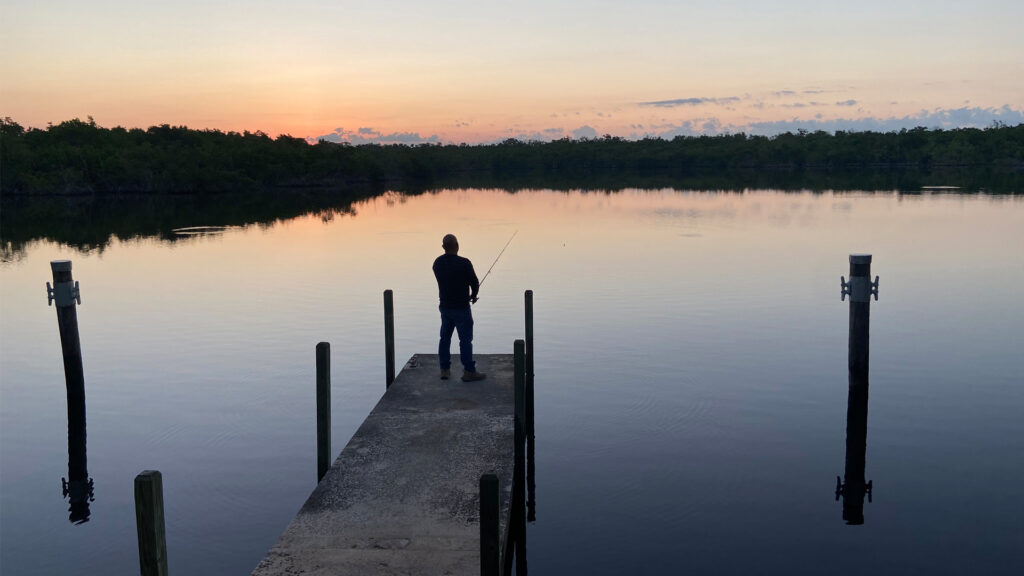By Tom Palmer, Ancient Islands Group of Sierra Club of Florida
Now that the primaries are over, it is time to turn our attention to the general election.
That ballot in Florida will include several proposed state constitutional amendments.
This year, Sierra Club’s efforts are focused on defeating Amendment 2, which involves the right to hunt and fish, which Sierra considers unnecessary and which contains misleading language.
Florida law has supported the right to hunt and fish for more than 20 years, but you wouldn’t know that by listening to advocates for Amendment 2, a proposed Florida constitutional amendment that has been placed on the Nov. 5 ballot by the Florida Legislature.
Sierra Club supports the right to pursue legal hunting and fishing as allowed under state law, but it opposes Amendment 2 because it is not clear what approval would mean to Florida’s wildlife, Florida’s natural areas and Florida’s treasury.
The following question-and-answer format lays out the key issues.

Question: What does the amendment say?
Answer: It reads “Fishing, hunting and the taking of fish and wildlife, including by the use of traditional methods, shall be preserved forever as a public right and preferred means of responsibly managing and controlling fish and wildlife. This section does not limit the authority granted to the Fish and Wildlife Conservation Commission under Section 9 of Article IV.”
Q: What is the problem with that?
A: No one is sure how the term “traditional methods” will be defined. Will it mean that using dogs to pursue prey such as black bears will be allowed again? Will it allow the resumption of leg-hold traps? Will it alter fishing rules? No one knows.
Q: Doesn’t the Florida Fish and Wildlife Conservation Commission (FWC) oversee all of that?
A: It does, but any FWC rule in place could face a legal challenge if some individual or group thinks it limits traditional hunting or fishing methods as they define them. The taxpayer will be on the hook to pay to defend those suits. They also would have to pay the state’s legal expenses if someone who considers rule changes harmful to wildlife decides to sue.
Q: What other objections have arisen?
A: Making hunting, fishing and the so-called traditional methods the preferred wildlife management approach ignores the fact that most of Florida’s wildlife species are not game species. The question is where does that put managing non-game species, such as the Florida grasshopper sparrow or painted buntings?
Q: If this amendment were approved, where would it reside in the Florida Constitution?
A: It would be placed as a public right along with the right to legal due process, the right to open government and other fundamental rights that align with the Bill of Rights in the U.S. Constitution.
Q. Why do opponents consider that an issue?
A. Its presence as an enumerated public right in the Florida Constitution may be interpreted to mean it could be used to justify the expansion of hunting in places where hunting is currently not allowed.
Q. Can you provide an example?

A. Yes. The Florida Legislature, as it has done in other instances, could use the amendment’s approval to justify passing legislation that would pre-empt local government authority in this area. Specifically, it could prohibit local officials from adopting management plans for local conservation areas, such as Circle B Bar Reserve in Polk County, that ban hunting. There has been speculation that approval of this amendment could allow hunting in state parks, but that would require a change in state law, which currently makes hunting in state parks a second-degree misdemeanor.
Q: By the way, is the right to hunt or fish in Florida in the future under any kind of threat that would justify this amendment?
A: No. Amendment supporters cite an unsuccessful referendum in Oregon as an example of potential threats, but nothing like that has ever been seriously considered in Florida.
Q: Where can I find out more?
A: Go to noto2.org.
Tom Palmer is a Florida native who retired in 2016 after an award-winning career covering government and environmental issues in Polk County for 42 years. He is now chair of the Ancient Islands Group of Sierra Club of Florida, which first published this piece in its newsletter.
If you are interested in submitting an opinion piece to The Invading Sea, email Editor Nathan Crabbe at ncrabbe@fau.edu. Sign up for The Invading Sea newsletter by visiting here.




Thank you for the information. More info is always good.
Tom, I think there is a greater risk from over population, which puts great pressure on the natural areas, than the Amendment does. You mentioned law suits, that threat from either side will never go away. Flooding and a sustainable water supply seem to be of greater concern than wildlife, though all are related.